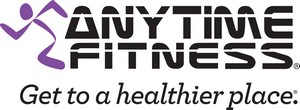By Kim Griner
We were shocked and appalled when we saw what the court system deems public service the other weekend. ROSEMARY BARRETT, convicted of stealing over $10,000 from the defunct fire District 27 as clerk/treasurer, is performing “Court Ordered Community Service” working the fish fry at St. Guadalupe in Macedonia. Along side her husband, she is serving fish and drinks to family and friends. This is a penalty for ripping off the taxpayers?? My idea of community service is picking up garbage along roads, cleaning police cars, toilets and windows at City Hall. What Barrett is doing I consider to be VOLUNTEER work parishioners of the church do in a way to show appreciation and thanks to their parish. Making matters worse, Barrett’s husband allegedly refused to seat a paying customer, simply because he was wearing a Michigan shirt. and then talking about it with other Parish volunteers – REALLY? It’s better to have an “M” across your chest instead of numbers!!! Northfield Center Trustee Buescher wrote in one of his newsletters that he surmised he thought the amount swindled allegedly to be $30,000. That figure got diminished eventually to $10,000. I wonder if admitting to a lesser figure got her a cushy sentence such as working a fish fry with her husband. The whole matter stinks as badly as the leftover fish they throw away the following day! The Sagamore taxpayers deserve more from our Justice system!
People convicted of crimes may be required to perform community services or to work for agencies in the sentencing jurisdiction either entirely or partially as a substitution of other judicial remedies and sanctions, such as incarceration or fines. For instance, a fine may be reduced in exchange for a prescribed number of hours of community service. The court may allow the convict to choose their community service, which must then be documented by “credible agencies,” such as non-profit organizations, or may mandate a specific service.
Sometimes the sentencing is specifically targeted to the convict’s crime, for example, a litterer may have to clean a park or roadside, or a drunk driver might appear before school groups to explain why drunk driving is a crime. Also, a sentence allowing for a broader choice may prohibit certain services that the offender would reasonably be expected to perform anyway; for example, a convicted lawyer might be specifically prohibited from counting pro bono legal service.
Kim Griner
Sagamore Hills Resident






















